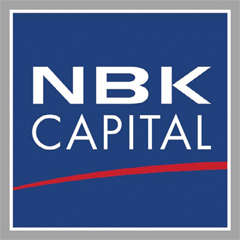 .
.KUWAIT: Global equities were mixed for the month of September; UK equities and emerging markets gained 1.7 percent and 1.1 percent respectively, while Japanese and Euro stocks fell by 2.6 percent and 0.7 percent. Commodities were notably higher for the month, led by Brent and gold. Brent oil continued on its August momentum and rose by 6.2 percent, supported by OPEC's agreement to cut production for the first time in eight years. The organization held an informal meeting in Algeria this month and agreed to cut production levels to a range of 32.5 million to 33 million barrels a day.
In September, the US market saw a sequence of weak data, including an unexpected contraction in the US ISM Manufacturing Index, lower than expected jobs report and a slowdown in services, therefore pausing any Fed rate hike for the month.
The August US ISM Manufacturing Index, released in September, came in lower than expected at 49.4, below 50, signaling a contraction in US manufacturing, after six months of positive readings. The August Nonfarm Payroll came in lower than expected at 151 thousand versus expectations of 180 thousand. The ISM Non-Manufacturing Index for August also came in lower than expected at 51.4, however exceeding 50, suggesting a steady expansion in services. US retail sales added to the weak data, as it came in lower than expected, falling by 0.3 percent month over month. Furthermore, US housing data came in softer than expected as building permits and existing home sales unexpectedly fell. On a positive note, the third estimate of the second quarter 2016 Real Gross Domestic Product (GDP) released at the end of September was revised upward to 1.4 percent, better than the previously reported 1.1 percent increase.
The US Fed did not raise rates in September, but indicated that a hike is coming soon, signaling a rate hike probability in December. Interest rate futures showed that the probability of a federal rate hike in December has dropped from 65 percent in August to 59 percent.
In September, US equity markets had a volatile month, swinging between gains and losses, but ended the month flat. The UK Manufacturing Purchasing Managers Index (PMI) for August showed a strong gain over the previous month, with the overall index rising from 48.3 to 53.3. The Bank of England left monetary policy unchanged at its September meeting, expressing the view that the economy had performed better than expected in August; although the central bank signaled the possibility of another rate cut in the near future.
UK equities ended the month with gains, rising by 1.7 percent as measured by the FTSE 100. The European Central Bank President, Mario Draghi reiterated that the central bank will keep rates low, continue buying assets, and keep supporting lending in the region. The Eurozone showed a better than expected manufacturing sector in September; the preliminary manufacturing PMI number for the month came in at 52.6 compared to 51.7 in August. The service sector PMI was slightly weaker than expected, coming in at 52.1 compared to 52.8 but remained in expansionary territory.
European equities were down by 0.7 percent, as measured by the Euro Stoxx 50. The Bank of Japan announced that it will attempt to anchor the 10-year Japanese government bond yields at close to current levels of zero percent, with the short rate unchanged at a negative 10 basis points. Japanese stocks, as measured by the Nikkei 225, finished the month lower by 2.6 percent.
The Chinese Caixin manufacturing Purchasing Managers' Index (PMI) came in at 50.1 in September, slightly above the 50 reading recorded in August. New home prices in China's 70 major cities climbed 9.2 percent in August from a year earlier. Emerging market investment inflows are at a three-year high, driven by a rebound in commodity prices and a weaker dollar. The MSCI emerging market index is up nearly 14 percent year to date and 1.1 percent for the month.
The GCC equity markets were the worst performers, ending the month down by 4.1 percent. The market was dragged by Saudi and Qatari equities, declining 7.5 percent and 5 percent respectively. Saudi Arabia announced further reductions in subsidies, cuts in minister salaries and reductions in financial benefits for public sector workers under an austerity drive. Qatari stocks were mostly lower on profit taking after sharp year to date gains.










